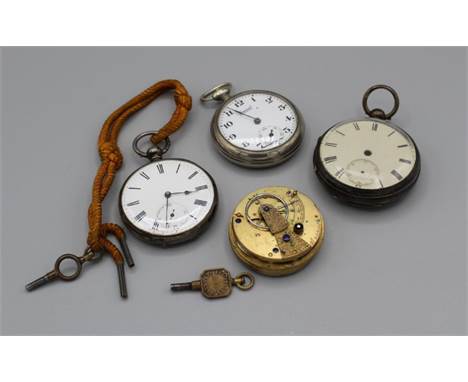Clock repair tools are essential for fixing and maintaining various types of clocks. They enable repair technicians to accurately measure, adjust, and repair different components of a clock such as the hands, dial, and movement.
With the right clock repair tools, technicians can ensure that clocks are functioning properly and keeping accurate time. These tools range from basic items like screwdrivers and pliers to more specialized tools like mainspring winders and balance staff removing tools.
Having a comprehensive set of clock repair tools is crucial for anyone in the clock repair industry to provide high-quality and efficient repairs.

Credit: www.ggrecon.com
Essential Tools For Clock Repair
Clock repair requires the use of specialized tools to ensure accurate and efficient restoration. Whether you are a professional clockmaker or an avid hobbyist, having the right tools is essential for a successful repair job. In this section, we will explore some of the most crucial tools for clock repair.
Clock Movement Extractors
- Clock movement extractors are indispensable for removing the clock movement from its case.
- These tools ensure the safe extraction of delicate clock mechanisms without causing damage.
- Using a clock movement extractor allows for easy access to the intricate parts for repair and maintenance.
Clock Hand Remover
- A clock hand remover is a handy tool used to detach clock hands from their respective arbors.
- This tool prevents any accidental damage to the delicate hands during removal.
- The clock hand remover provides a gentle and precise method of detaching hands, ensuring a seamless repair process.
Screwdrivers For Small Clock Parts
- Clock repair often involves dealing with small screws that require precision handling.
- Screwdrivers designed specifically for small clock parts are essential for accurate and secure screw removal and installation.
- These screwdrivers come in various sizes, allowing for precise adjustments to the clock mechanism.
Pin Vise For Drilling Small Holes
- A pin vise is a versatile tool used for drilling small holes in clock components.
- This tool provides a stable grip on tiny drill bits, ensuring accurate drilling without causing damage.
- The pin vise allows for intricate repairs, such as replacement of broken or damaged pivots or arbors.
Pliers For Clock Hands
- Pliers specifically designed for clock hands are indispensable for safely manipulating and adjusting these delicate components.
- Clock hand pliers provide a secure grip without causing any damage to the fragile hands.
- These pliers enable precise positioning of the clock hands for optimal functionality and aesthetic appeal.
Tweezers For Handling Delicate Parts
- Clock repair often involves working with intricate and delicate parts that require careful handling.
- Tweezers with fine tips are essential for safely maneuvering these small components.
- These tweezers allow for precise placement and alignment of delicate parts, minimizing the risk of damage during repair.
Having these essential tools at your disposal will ensure that you can tackle clock repair projects with confidence and precision. Investing in quality tools is crucial for achieving professional results and prolonging the lifespan of your treasured timepieces.
Specialized Tools For Clock Restoration
Clock repair requires a specialized set of tools to ensure precision and accuracy in the restoration process. From replacing worn bushings to cleaning clock parts, these tools play a crucial role in maintaining the functionality and beauty of timepieces. In this section, we will explore some of the essential tools used in clock restoration.
Bushing Tools For Replacing Worn Bushings:
- Replacing worn bushings is an integral part of clock restoration. The following tools assist in this process:
- Bushing punches: These tools are used to remove old bushings from clock plates.
- Bushing reamers: Designed to enlarge the holes in clock plates for the installation of new bushings.
- Burnishing tools: Used to smooth and shape the new bushings for a precise fit.
- Pivot drills: Essential for drilling through the center of the new bushings.
Clock Pivot Polishers:
- Clock pivot polishers are crucial for restoring the smooth functioning of clock pivots, which are critical components of clock movements. The following tools aid in this process:
- Pivot files: These narrow files are specially designed to shape and polish clock pivots, ensuring optimal performance.
- Pivot burnishers: Used to smooth out any imperfections on the clock pivots, improving their functionality.
- Polishing cloths: These soft cloths are used to gently polish the clock pivots to a high shine.
Ultrasonic Cleaner For Cleaning Clock Parts:
- Clock parts require thorough cleaning to remove dirt, dust, and old lubricants. An ultrasonic cleaner is a valuable tool for achieving this level of cleanliness. Its benefits include:
- Efficient cleaning: The ultrasonic cleaner uses high-frequency sound waves to create microscopic bubbles that agitate and dislodge contaminants from the clock parts.
- Gentle on delicate components: The cleaning process is gentle and non-abrasive, preserving the integrity of the sensitive clock parts.
- Time-saving: The ultrasonic cleaner allows for simultaneous cleaning of multiple clock parts, significantly reducing the cleaning time required.
Clock Mainspring Winder:
- Clock mainsprings can be difficult to handle and wind manually. A mainspring winder simplifies and streamlines this process, offering the following advantages:
- Precise winding: The mainspring winder ensures even and accurate winding, avoiding potential damage to the mainspring or the clock movement.
- Time-saving: Using a mainspring winder eliminates the need for manual winding, allowing clock repair experts to complete their tasks more efficiently.
- Improved safety: By reducing the risk of accidental slips or overtightening, a mainspring winder enhances safety during the restoration process.
Horology Books For Reference And Learning:
- Clock repair is both a skill and a craft that requires continuous learning and development. Horology books provide valuable resources for reference and expanding one’s knowledge. These books offer:
- In-depth knowledge: Horology books delve into the intricate details of clock mechanisms, allowing clock repair professionals to gain a deeper understanding of their craft.
- Troubleshooting guides: These books often include troubleshooting guides to assist with identifying and resolving common clock-related issues.
- Historical insights: Some horology books provide historical context, enabling clock restorers to better understand and appreciate the timepieces they work on.
Advanced Tools For Clockmakers And Professionals
Clock repair requires an arsenal of tools that cater to the intricate mechanisms of timepieces. Every clockmaker and professional needs advanced tools to ensure efficient repairs and accurate restoration. Let’s explore some of the essential tools that can take your clock repair skills to the next level.
High-Precision Calipers For Accurate Measurements:
- Use high-precision calipers to measure components with utmost precision.
- Perfect for measuring pivot diameters, gear thickness, and other vital dimensions.
- Facilitates accuracy and ensures proper fitting of parts.
Bergeon Clock Gauge For Checking The Fit Of Clock Parts:
- The bergeon clock gauge is indispensable for evaluating the compatibility of clock parts.
- Allows clockmakers to check if components are within the required dimensions.
- Ensures the smooth functioning of the clock movement and prevents issues due to ill-fitting parts.
Jacot Tool For Polishing Pivot Holes:
- The jacot tool is a specialized instrument used for polishing pivot holes.
- Provides clockmakers with a comprehensive solution to enhance the smoothness of pivots.
- Restores the functionality of pivot holes, contributing to the ideal performance of the clock.
Microscopes For Detailed Inspection:
- Use microscopes for in-depth examination of delicate clock components.
- Reveal microscopic imperfections and enable precise analysis of the clock mechanism.
- Enables clockmakers to identify potential issues and carry out efficient repairs with accuracy.
Watch Timing Machine For Accurate Timekeeping:
- A watch timing machine is crucial for achieving accurate timekeeping in clocks.
- Measures the rate at which the clock keeps time, allowing adjustments to be made.
- Essential for ensuring precision in horological instruments.
Equipped with these advanced tools, clockmakers and professionals can elevate their repair skills to new heights. Each tool serves a specific purpose, providing precision, compatibility checks, polishing capabilities, detailed inspections, and precise timekeeping adjustments. By incorporating these tools into your clock repair arsenal, you can achieve remarkable results and restore timepieces to their former glory.
Safety Equipment For Clock Repair
Clock Repair Tools: Safety Equipment For Clock Repair
Clock repair work requires the use of various tools to ensure precision and accuracy. However, it is equally important to prioritize safety while conducting repairs. Here are essential safety equipment items for clock repair:
Eyewear For Eye Protection:
- Safety goggles: Protect your eyes from dust, debris, and potential flying objects.
- Polycarbonate lenses: Prevent injury from accidental impacts.
- Shatterproof design: Ensure maximum safety and durability.
Dust Mask For Protection Against Dust And Particles:
- N95 respirator mask: Filters out airborne particles, including dust, debris, and harmful substances.
- Adjustable nose bridge: Provides a secure and comfortable fit.
- Respiratory protection: Guards against respiratory hazards during clock repair tasks.
Work Gloves For Hand Protection:
- Cut-resistant gloves: Shield hands from potential cuts or abrasions while handling sharp tools or fragile clock parts.
- Anti-slip grip: Enhances dexterity and maintains control during meticulous repair work.
- Breathable and comfortable materials: Allow for extended periods of glove use without discomfort.
Fire Extinguisher For Emergency Situations:
- Abc dry chemical fire extinguisher: Effective against multiple types of fires, including electrical fires that may occur during clock repair.
- Quick and easy operation: Ensure easy accessibility and swift response in case of emergencies.
- Regular inspections and maintenance: Keep the fire extinguisher functioning properly.
First Aid Kit For Accidents During Repair Work:
- Bandages and adhesive tape: Treat minor cuts and wounds that may occur during repair tasks.
- Antiseptic wipes: Disinfect wounds to prevent infection.
- Tweezers and scissors: Aid in wound cleaning and dressing.
- Disposable gloves: Protect against cross-contamination while attending to injuries.
Remember, when engaging in clock repair, prioritize your safety by using the appropriate safety equipment. By taking these precautions, you can focus on your repair tasks with confidence and minimize the risk of accidents or injuries.
Storage And Organization For Clock Repair Tools
Clock repair tools are essential for any professional or hobbyist in the industry. To ensure that these valuable tools are safe, easily accessible, and well-organized, there are several storage and organization options available. From toolboxes to labeling systems, parts trays to tool rolls, and workbenches with built-in storage drawers, these solutions can greatly enhance efficiency and productivity in clock repair endeavors.
Toolboxes For Safekeeping And Easy Access:
- Toolboxes provide a secure and convenient storage solution for clock repair tools.
- They come in various sizes and designs, accommodating different tool sets and requirements.
- With sturdy construction and compartments, toolboxes keep your tools safe from damage and allow for easy access when needed.
Labeling Systems For Quick Identification:
- Labeling systems are crucial for quickly identifying and locating specific clock repair tools.
- Use labels or color-coded tags to mark different tool categories or functions, enabling effortless retrieval during repairs.
- By implementing a clear labeling system, you can save time searching for the right tool and stay organized throughout your projects.
Parts Trays For Sorting And Organizing Clock Parts:
- Parts trays are invaluable for sorting and organizing clock parts during repair processes.
- These trays typically have multiple compartments or slots, perfect for separating small components.
- By utilizing parts trays, you can keep track of different parts and easily access them as required, ensuring efficient repairs.
Tool Rolls For Portability And Storage Efficiency:
- Tool rolls offer a practical and compact solution for storing and transporting clock repair tools.
- Made of durable fabric with individual pockets, tool rolls keep your tools organized and protected.
- With the ability to roll up neatly, they save space and allow for easy storage in cabinets or workbenches.
Workbenches With Built-In Storage Drawers:
- Workbenches with built-in storage drawers offer a comprehensive storage solution for clock repair tools and equipment.
- These workbenches provide a dedicated workspace with integrated drawers for effortless organization.
- The built-in drawers ensure that tools are easily accessible, boosting efficiency and minimizing clutter in the repair area.
Effective storage and organization of clock repair tools are essential for a smooth and efficient repair process. By utilizing toolboxes, labeling systems, parts trays, tool rolls, and workbenches with built-in storage drawers, you can enhance productivity, save time, and ensure that your valuable tools are well-maintained and easily accessible for all your clock repair needs.
Frequently Asked Questions On Clock Repair Tools
How Do You Repair A Broken Clock?
To repair a broken clock, first, make sure the clock is not wound too tight or dirty. Then, gently clean and oil the parts if needed, and finally, adjust the hands and pendulum.
What Are The Essential Tools For Clock Repair?
The essential tools for clock repair include a screwdriver set, pliers, tweezers, clock oil, and cleaning solution. Additionally, a magnifying glass and clock hands puller can be handy.
Can I Repair A Clock Without Professional Help?
Yes, you can repair a clock without professional help if it is a simple issue. However, for complex repairs or valuable antique clocks, it is recommended to seek professional assistance.
Conclusion
In closing, clock repair tools are essential for anyone looking to maintain and repair their timepieces. From simple tasks like replacing watch batteries to intricate repairs requiring specialized tools, having the right equipment is crucial for success. A quality set of tools, including precision screwdrivers, pliers, and tweezers, can make all the difference in ensuring a thorough and efficient repair process.
Additionally, having a reliable clock key and oil can greatly improve the longevity and performance of your clocks. By investing in the proper tools and taking the time to learn their usage, you can confidently tackle any clock repair project that comes your way.
So, whether you’re a seasoned horologist or a beginner looking to delve into the world of clock repair, make sure to equip yourself with the right tools to keep your timepieces ticking for years to come.

Meet Aron Crock, a clock hardware expert with seven years of hands-on experience. Aron’s journey into the world of clocks began as a hobby, but his passion soon turned into a profession. He’s known for his deep understanding of clock mechanisms and is highly respected in the field. Aron’s dedication to making clocks tick with precision and his innovative ideas have made him a key player in the industry. He’s committed to pushing the boundaries of clock technology and leaving a lasting impact on the world of timekeeping. Aron Crock is a true clock enthusiast, and his expertise shines through in his work.

